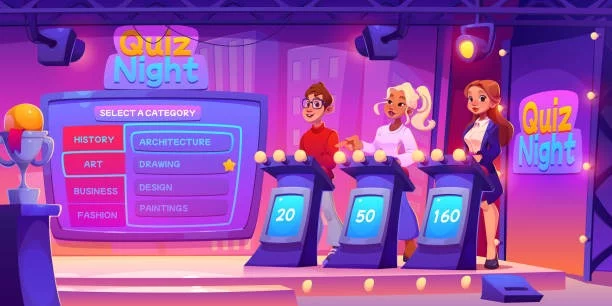The timer’s ticking. Your teammate is twisting a strange-looking statue. You’re still decoding the weird symbols on the wall. Sound familiar?
Escape rooms bring out something special in all of us—our quirks, instincts, and how we handle chaos under pressure. But here’s the twist: how you solve puzzles might say more about your personality than you think. Ready to find out which escape room persona you secretly are?
1. The Lockpicker
You head straight for the padlock. You fiddle with knobs, try random codes, and twist anything that looks mechanical. Instructions? Optional. You believe in action first, questions later.
You’re bold, spontaneous, and love being in control—especially when there’s something physical to conquer. You don’t wait for approval—you dive right in. Whether it works or not, you bring serious energy.
2. The Clue Collector
You’re the team’s human magnet. Every book, knob, and sticky note ends up in your hands. “This dusty spoon might be important,” you whisper while holding it like treasure.
You love collecting details and examining everything up close. You’re the one who notices patterns others miss. Overthinker? Maybe. But when the answer is hiding in plain sight, you’re the first to find it.
3. The Ringleader
Before the game starts, you’re already delegating tasks. “You take that corner, I’ll scan the wall, let’s stay efficient.” You thrive in high-pressure group settings and probably manage crises like a pro.
You’re a natural leader. You steer the group, keep things moving, and yell “Focus!” with heart. If the room has a countdown, you’ve got it mentally tattooed on your soul.
4. The Over-analyzer
You find a clue, freeze, and stare. You squint. You whisper, “Maybe it’s a metaphor?” You’ve been on the same riddle for 10 minutes and love every second.
You’re a deep thinker. You analyze patterns, symbols, and what’s behind the obvious. While you might take your time, when you land on a solution, it’s usually genius. You bring calm intensity to the room.
5. The Wild Guesser
“Try 1234!” “How about 9999?” You toss out random codes with gleeful abandon. And sometimes… they work. No one knows how, but you somehow solve things by accident.
You’re intuitive, playful, and you trust your gut more than logic. You love surprises and don’t get bogged down by overthinking. When time’s running out, your chaotic creativity just might save the day.
6. The Moral Supporter
You don’t care much for puzzles. But you’re the team cheerleader. You say things like, “You’re doing great!” and keep the vibe light. You also magically find the last clue when no one else is looking.
You’re empathetic, optimistic, and always tuned into the group’s energy. You make sure everyone feels seen—even in the middle of a logic storm. Every group needs someone like you.
Whichever role you play, a well-designed escape room brings all these quirky traits to life under pressure. It’s not just a game—it’s a stage where your instincts take over, and the room becomes a mirror.
So, What Does It All Mean?
Turns out, solving puzzles is like a mini personality test. Whether you lead the charge, guess wildly, or quietly observe—your style says a lot about how you handle pressure, connect with others, and chase solutions.
Some of us thrive on logic. Others rely on gut feelings or social awareness. The magic happens when all of those personalities collide in one intense, laughter-filled, 60-minute mission.
The thrill of an escape room Houston experience is how it magnifies these personalities into unforgettable stories. No two teams ever play the same way—and that’s the beauty of it.
FAQs
Can your escape room role change depending on the group?
Definitely! You might take charge with friends, but stay quiet around coworkers. Your role flexes with the room’s energy.
Do escape rooms help improve communication skills?
Yes. They naturally encourage quick decision-making, clear communication, and collaboration—all while being super fun.
Are escape rooms good for people who don’t like puzzles?
For sure. There’s always a spot for supporters, observers, or vibe-keepers. It’s about teamwork, not just brainpower.
Unlock Who You Really Are
Whether you overthink clues or cheer from the sidelines, every personality brings something special to the table. Escape rooms aren’t just about solving puzzles—they’re about discovering how you tick.
So gather your crew, pick your vibe, and enter the room. You might escape in 50 minutes, but the laughs, surprises, and a-ha moments? Those stay with you way longer.

Lexy Summer is a talented writer with a deep passion for the art of language and storytelling. With a background in editing and content creation, Lexy has honed her skills in crafting clear, engaging, and grammatically flawless writing.



